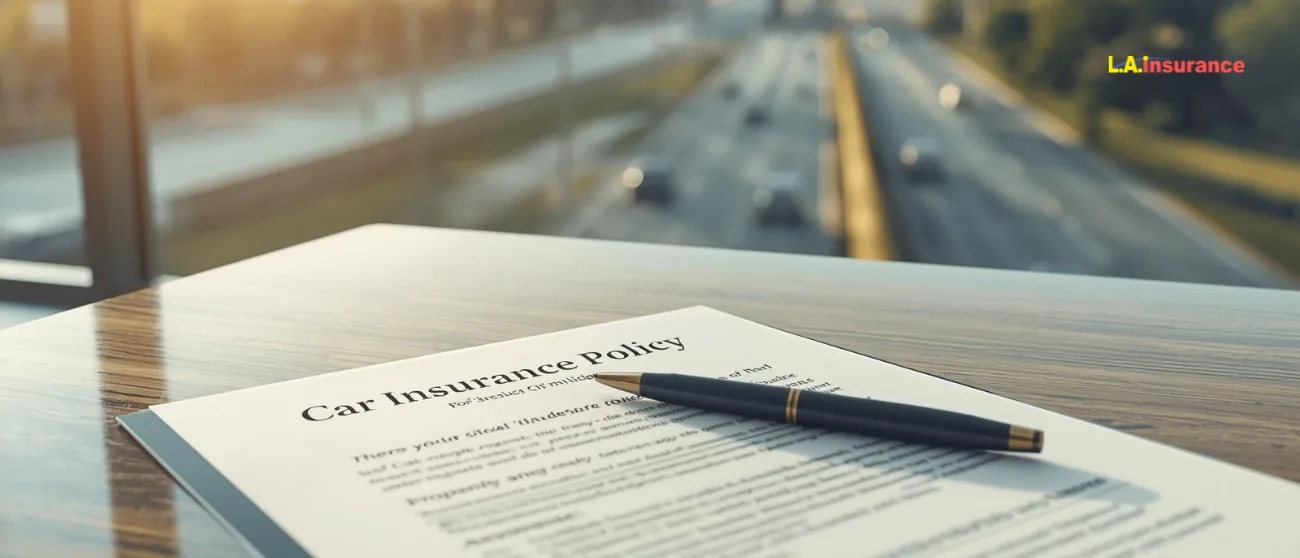
Publish Date: 28-09-2025
Renter's insurance
Last Updated: 30-09-2025
Does Renters Insurance Cover Moving?
Most Americans don’t stay put for long. The average U.S. resident moves 11.7 times in their lifetime, according to the U.S. Census Bureau. But why do they move so much?
Well, people move to find cheaper housing, upgrade to a larger home, or finally go from renting to owning. Others might move for family reasons, new job opportunities, or simply to start fresh.
In fact, in 2022 alone, 8 million Americans made interstate moves.
But moving isn’t always easy. It’s already a lot.
You have to wrap up your electronics, gather boxes, lift heavy furniture, and worry about whether your renters insurance will help if something goes wrong.
Say your couch gets busted. Or your laptop goes missing while you’re packing. Does renters insurance cover moving damages like that? Or are you left to handle it yourself?
In this article, we’ll explain what renters insurance covers and where it falls short. We’ll show you how to protect your valuable items. We’ll also discuss what risks are covered, the responsibilities of moving companies, and what to do if your high-value items get damaged during the move.
Does Renters Insurance Cover Moving Damage?
Yes, renters insurance may cover damage that happens while you are moving, but this isn’t always true.
Renters insurance is meant to protect your belongings, even during a move, but there are important conditions. Your items will only be covered if they are damaged or stolen due to a risk listed in your policy.
Certain events, like fire, theft, vandalism, or a sudden windstorm, might be covered by your insurance. However, if your friend accidentally drops your TV or a mover scratches your table, your insurance usually won’t cover that.
Also, while your insurance covers personal property, it may not cover the full value. Many insurance companies cap off-premises coverage at 10% of your total policy. So, if you have $20,000 in coverage, only $2,000 may apply while moving.
And remember, damage from negligence, like poor packing or a clumsy lift, isn’t on your insurer. That’s on you or your moving company.
Things Renters Insurance Covers When Moving
You could be fortunate if your damage falls under a covered peril while you’re moving out.
- Theft: If someone snatches your belongings from the moving truck or parking lot, you’re likely covered.
- Vandalism: If your boxes are damaged while left unattended, your insurance may pay you the actual cash value (ACV) of the property.
- Fire and Smoke: If your stuff goes up in flames during transport, your insurer may cover the cost to replace it.
- Windstorms or Hail: Bad weather causing damage to your packed items? That’s a potential covered peril.
- Explosion or Vehicle-related Damage: Yes, these are rare, but they’re often included in renters insurance policies.
Your renters insurance covers personal property like:
- Electronics
- Clothing
- Books
- Small appliances
- Furniture
- Inventory of household items
- Other property not excluded in your policy
However, you must remember a few key things here.
If your expensive camera or high-value items, like jewelry, are worth more than $100 per pound, check your insurance policy. Many insurers place limits on coverage unless you add extra protection or list those items.
If your claim is approved for a damaged or stolen item, your insurer will either pay for its replacement value or provide a similar item, based on your coverage.
Want the best renters insurance policy from the most affordable insurance agency? Check out our affordable renters insurance policy today. We offer reliable coverage for tenants at the best rate. Our renters insurance protects you from many risks, including the one associated with moving. Whether you’re moving within the state or out of state, get a renters insurance quote from L.A. Insurance and compare it with other providers to see how you can save money with us.
Types of Policy That Cover Any Damage While Moving
Each renter's insurance covers different risks. Some policies protect you only inside your rental. And others go with you even during a move. Therefore, you must know which part of your renters insurance policy will pay you when you’re between places.
1. Personal Property Protection
If you have an active renters insurance policy that includes coverage for your personal property, insurers may pay for moving damage as long as the damage is due to a covered peril.
The covered perils are events that your insurer typically covers. In this case, you'll receive coverage while moving if your personal property (e.g., clothes, furniture, electronics, collectibles, or jewelry) is damaged due to incidents such as theft, fire, vandalism, or even a freak windstorm.
Let’s say someone breaks into your car while you’re unloading boxes. Then this part of your renter's policy might cover the cost of the stolen items.
But there is an issue here. Coverage outside your home is mostly limited. As we stated before, many insurance companies only provide 10% of your total coverage for off-premises property. So if you’re covered for $30,000, you may only receive $3,000 during your move.
Besides, personal property coverage doesn’t mean it covers everything. Vehicles, cash, or anything that’s not listed on your policy will not be covered. So, you should make sure to check with the insurer first before feeling financially secure while moving.
2. Loss of Use Coverage (Also Called ALE)
Loss of Use – sometimes called Additional Living Expenses (ALE), helps when your rental becomes unlivable. Let’s say a pipe burst or fire breaks out, and you need to move fast. This part of your policy helps you cover:
- Temporary housing
- Transport
- Storage unit fees
- Even extra meal costs if you can’t cook
This is where renters insurance covers moving in a different way. Not by protecting your items, but by helping you stay afloat during a chaotic time.
3. Scheduled Personal Property (Endorsements on Riders)
If you have expensive stuff such as:
- Jewelry
- Art
- Instruments
- Cameras
Any of these high-value items may not be protected in full by a base policy. So, you will require additional coverage. To secure these costly items, you can add a rider to your insurance policy that covers these items for their full replacement value even while you’re moving.
On a final note, it’s important to keep in mind that all these coverages come from your own insurance company, not from the moving company. If you need more protection, you always have the option to explore coverage offered by the moving company. And we’ll discuss this later in this article.
When Does Renters Insurance Not Cover Moving?
Renters insurance does not cover every situation or item, particularly while you are moving. Here are some scenarios when your policy might let you down:
1. Damage Not Caused by a Covered Peril
This one is really important.
If your stuff breaks because someone dropped it, tipped over it, or stacked boxes wrong – sorry, that’s not a covered peril. Here, you’re either just unfortunate, or it’s a result of bad packing.
Renters insurance policies only cover moving damages caused by specific events like theft, vandalism, fire, or windstorms. Not human error. Not clumsy friends. Not wobbly furniture.
2. Movers Break Something– But It’s Not Their Fault
If your mover accidentally drops your TV, you might think your insurance will help you. However, unless the moving company's insurance covers it, your renters insurance probably won't.
Why? Because it was just an accident, not something specifically covered by named perils.
And the same goes if you hire help through an app like TaskRabbit. If they damage something and they’re not insured, you’re left with the bill.
3. You Exceed Your Coverage Limits
Your policy has limits. And when you move, those limits often shrink.
Most renters insurance companies cap off-premises coverage at about 10% of your total. Also, high-value items like Jewelry, fine art, or collectibles usually have sub-limits. If an item is worth more than $100 per pound, and you didn’t add additional coverage, you might only get 60 cents per pound per item (if that).
4. You Let Your Coverage Lapse
Moving gets hectic. And you may easily forget things like updating your address with your insurance company.
If your policy ends the same day your lease ends, and you haven’t set up your new coverage yet, your stuff might be totally unprotected during the move.
Tip: Always check with your renter's insurance agent or professional to sync coverage between your old and new place.
5. You Didn’t Add Extra Coverage for Special Items
Standard renters insurance isn’t designed for rare guitars, antique vases, or luxury watches. If you didn’t add a rider or endorsement, even a covered peril might not help.
If you want the full replacement value of those things, especially during a move, you need to buy renters insurance with property insurance options in place.
Does Renters Insurance Cover Moving Costs and Expenses?
Only sometimes. And only for the right reasons.
Your renters insurance isn’t designed to pick up your moving truck fee or bubble-wrap bill. But it can be useful when your move is forced, which means if you’re leaving a home that’s suddenly become uninhabitable due to covered peril.
Here's when moving costs are covered.
If you’re temporarily displaced, let’s say from water damage, fire, or another sudden disaster, your policy’s loss of use coverage, which is also known as Additional Living Expenses (ALE), may pay for the following:
- Hotel or temporary housing
- Extra food costs if you can’t cook
- Even storage fees or transport if you need to move your stuff out fast
So, in one way or another, renters' insurance is able to help you indirectly by paying for moving costs. But obviously, it’s not a regular coverage that will help in every situation.
This brings us to the question of what’s not covered. Your policy won’t pay for
- Regular moving costs (even if you’re moving far)
- Hiring a mover for a typical apartment change
- Extra help or supplies unless damage from a covered peril forces the move
You’re on your own for that U-Haul, unless a natural disaster or major property issue is involved.
Pro Tip: You can choose how much loss of use coverage you want. If your monthly expenses are $2,000, aim for at least $6,000 in ALE. That’s enough to help if you’re displaced for up to three months.
How to Cover High-Value Items During a Move?
To be honest, some things are just too precious to leave to chance.
If you’re moving with jewelry, instruments, art, or tech that’s pricey, your standard renters insurance policy might not be sufficient. That’s because most insurers set strict limits on high-value items, especially during a move.
But you can protect them if you follow the right way. Here’s how to do so:
- Add scheduled personal property coverage. This lets you list individual expensive items on your policy and ensures you get a full replacement or similar item.
- Ask your insurance company for a rider or endorsement. This gives you additional coverage. It’s great for stuff worth more than $100 per pound.
- Keep an inventory. Photos, receipts, serial numbers, have it all saved. If something happens, this speeds up claims and proves ownership.
- Pack smart. Use solid bubble wrap, cushioned boxes, and carry the item with you if possible. Don’t hand valuables to the movers unless you have to.
Does Moving Company Offer Any Protection or Coverage?
Yes. But it’s not nearly as good as you might think.
Most moving companies offer some level of insurance coverage. But it’s usually the bare minimum. And it’s not the same as your renters insurance policy. Here is some coverage and what you should expect:
- Released Value Protection: This one is standard and free. But don’t get too excited. It only pays about 60 cents per pound per item. So, if your 4-pound laptop gets crushed? You’ll get $2.40. Hilarious! But it could still be useful for heavier items.
- Full Value Protection: This is comparatively better but costs extra. With full replacement coverage, the company agrees to cover the cost to repair or replace damaged items with a similar item. Although this sounds so great, read the contract closely because sometimes it may exclude some high-value items, and you may still owe a deductible.
- Third-Party Moving Insurance: If you need more protection, you can always buy third-party moving insurance from a separate insurance company. It gives you better coverage, and sometimes for damage caused by accidents, weather, or bad mishandling.
How Do I Prevent Property Damage While Moving?
- Moving day gets messy. But damage doesn’t have to be part of the process. Here’s how to protect your belongings and your space:
- Use furniture pads, bubble wrap, and corner guards to shield fragile items and walls.
- Don’t overload boxes. Use quality materials and label what’s fragile.
- If moving yourself, use moving straps, dollies, and floor runners to avoid accidents.
Hire licensed movers with solid liability insurance and double-check their insurance coverage. Cover your old floors, doorframes, and staircases. Your security deposit may depend on it.
Best Practices Before and During a Move
- Create a photo/video inventory of your belongings
- Review your renters insurance policy and add any additional coverage
- Schedule high-value items for full replacement coverage
- Notify your insurance company of your new address and move date
- Ask your moving company about 60 cents per pound per item and full value protection
- Use strong boxes, tape, and plenty of padding Wrap delicate electronics separately and label boxes clearly
- Cover walls, corners, and floors with protective materials.
- Keep personal or irreplaceable items with you, not on the truck
- Time your insurance cover so there’s no coverage gap between homes
Does Renters Insurance Cover Damages When Moving Out: Wrapping Up
Renters insurance covers moving, but only if damage is caused by a covered peril. For everything else, you’ll need smart packing, solid planning, and the right insurance coverage. Know your policy, fill the gaps, and move like a pro.
Related Resorces:
Answering FAQs About Renters Insurance Coverage and Moving Damage
Which area in the U.S. experiences the most frequent moves by residents?
The southern U.S. sees the highest number of moves. Texas, Florida, and North Carolina have experienced the biggest population gains in recent years. Many people are leaving states like California and New York. The majority of moves (53%) happen within the same county. Another 24% are moves within the same state, while 17% involve relocating to another state. A smaller but growing number of residents now move abroad.
Will renters insurance cover moving-related damage in Michigan?
If you’re in Michigan and moving within the same county or state, your renter's insurance can protect you against damage caused by covered perils. L.A. Insurance Agency in Michigan offers affordable and reliable coverage for tenants. If you live outside of Michigan, such as in Colorado, Texas, Florida, Arizona, Georgia, or Nevada, you can still request a quote for renters insurance from us.
Does landlord insurance cover tenant relocation?
Not a chance. Landlord insurance protects the property owner, not the tenant. If your apartment becomes unlivable, only your loss of use coverage under renters insurance covers relocation costs.
Will renters insurance cover a broken TV when moving in?
Only if it’s broken by a covered peril such as theft or vandalism. If you or a friend accidentally drop it, your insurer will not cover it unless you have additional coverage or a scheduled item rider.
Does my renters or homeowners insurance protect my belongings while moving?
Yes, but only for named perils. That includes things like fire, theft, or vandalism. Otherwise, standard renters insurance plans do not cover damage from mishandling or accidents during a move.
Does my renters insurance cover damage to my belongings while packing, or only during transit?
If damage happens during packing, coverage applies only if it’s from a covered peril (like sudden fire/theft/vandalism). But if you break something by accident while packing, your insurance policy won’t cover it. And the same applies in transit.
Sources:
Editorial Disclaimer
The information provided on this blog is for general informational purposes only and does not constitute professional insurance, legal, or financial advice. Coverage and rates are subject to individual eligibility, underwriting guidelines, and state availability. For specific questions regarding your policy or to get an accurate quote, please contact a licensed L.A. Insurance agent directly. We're an independent agency and not a direct insurance carrier. For more information on how we operate and handle your data, please see our Terms and Conditions and Privacy Policy.
Tag :
Renter's insurance
cheap insurance








